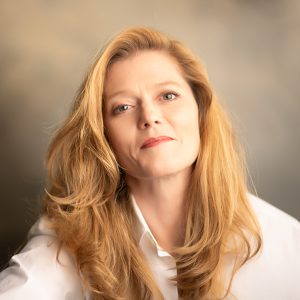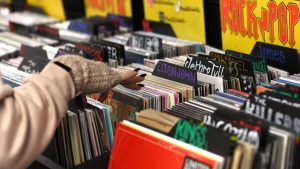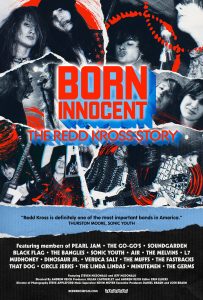Folk singer Daisy Rickman: ‘My Cornish village has become this strange, beige kind of Disneyland’ | Folk music
From Cornwall
Recommended if you like Shovel Dance Collective, Meg Baird, Anne Briggs
Up next Second album Howl – Cornish for “sun” – due for self-release on the spring equinox (20 March)
Cornwall was unusually quiet in 2020’s first lockdown, empty of the usual Easter tourists. “Something really magic happened to time down here,” says Daisy Rickman, adding the usual caveat acknowledging the wider horrors. Raised in deep-west Mousehole (pronounced “mowzul”), she had been playing in a psychedelic folk band, but now had space to start writing her own songs. She was also reading Ithell Colquhoun’s 1957 book The Living Stones, the surrealist painter’s drifting inquiry into Cornish folk history. “A lot of it is about this part of the coast, between Lamorna and Mousehole,” says Rickman, 27. “It’s amazing when you discover a piece of work that’s focused on something that’s really close to your heart, to see that through the eyes of an artist you really love.”
It’s a feeling that local listeners and Celtic aficionados might recognise when listening to Rickman’s music, inspired by Colquhoun’s patch and local ancient stone circles. Her self-released debut album, 2022’s Donsya a’n Loryow (Dance of the Moons in Cornish), is a gauze of fingerpicked guitar – sometimes delicate, sometimes yomping along at a druidic clip – glowing strings and Rickman’s hypnotically deep voice. After Rickman’s grandmother died during lockdown, she stayed at her house in Dorset and produced the whole album alone. “It was very playful and experimental,” she says. “There are loads of mistakes. I like recording that way, where you can hear the person in the music.” (She also did the artwork – Rickman is a committed painter whose lunar, mystic work recalls Mick Turner’s covers for Dirty Three.)
Rickman had never played solo before 2021, yet a year later found herself shipping LPs as far as Australia and Argentina, solely on the strength of word of mouth (she is a one-woman operation, with no PR). She has become affiliated with the London folk collective Broadside Hacks, performed with Bernard Butler at a recent all-star Bert Jansch 80th birthday tribute and released a single with the offbeat outdoors zine Weird Walk. Other pinch-me moments include supporting Gwenno at Cornwall’s cliff-carved Minack theatre (“the force that lies in that part of the coast was really powerful”) and playing with the Incredible String Band’s Mike Heron, who hadn’t performed in several years. “Being in the presence of someone who’s had such a profound impact on your life is pretty incredible,” she says.
Rickman’s music may sound out of time – Anne Briggs’ 1971 album The Time Has Come was another key inspiration – but it also resonates with burgeoning local fixations. There is a Cornish folk revival afoot, with Sounds Like Cornwall archiving the sound of the county, and even a club night, Club Nos Lowen. The megalithic stone Lanyon Quoit adorns a cult local T-shirt that states: “Kernow not England”.
It doesn’t feel like a coincidence that this interest among young people has coincided with the intensification of the local housing crisis – it’s a way to solidify connections with a place otherwise slipping out of reach. “Definitely,” says Rickman, who moved away in her early 20s – to Venice, Berlin and London, working as a film-maker – and returned a few years ago. Unable to find housing, she lives with her parents in her fishing village, which she has watched turn into “this strange, beige kind of Disneyland”.
That was the other side of lockdown in Cornwall, she says: “Knowing what to do with that anger when you’re up against people who have so much money they can buy up streets of houses.” It makes the endurance of a thriving local grassroots music community – partly fired by the opening of Falmouth venue the Cornish Bank in 2021 – all the more striking. “I feel really grateful that there is this great scene at the moment in Cornwall,” says Rickman. “When you’re younger, it’s easy to compare Cornwall to London, where there’s so much always going on. It feels really exciting that there’s all this stuff happening down here at the moment. That was another reason I wanted to move back. You have to follow where your soul needs to go.”





